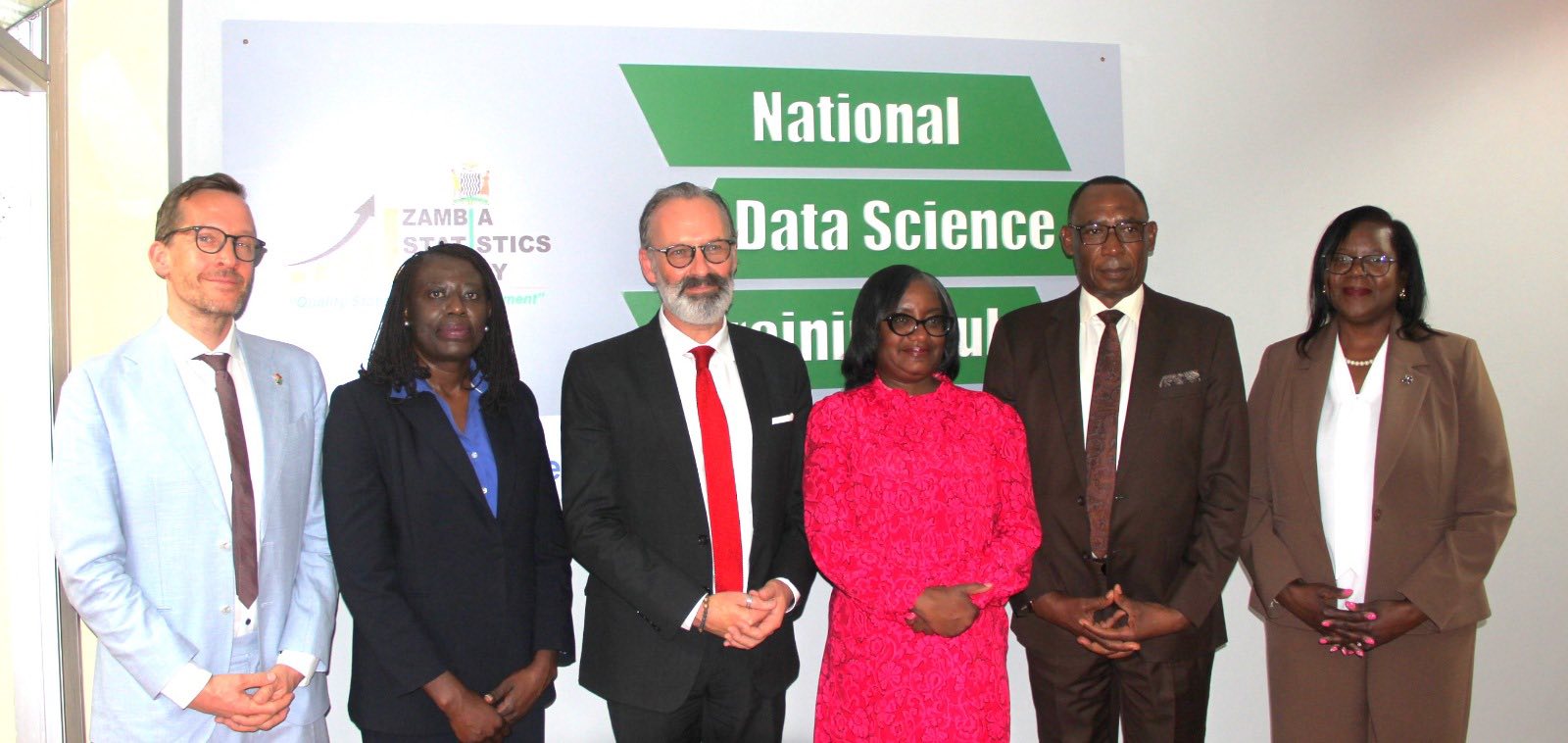ZamStats Unveils Zambia’s First Data Science Training Centre
The Zambia Statistics Agency (ZamStats) has launched the country’s first National Data Science Training Hub, a landmark development aimed at strengthening evidence-based decision-making and advancing innovation in data-driven governance.
The launch was officiated by Ms Prudence Kaoma, Permanent Secretary for Planning and Administration in the Ministry of Finance and National Planning. Also in attendance were Swedish Ambassador to Zambia, His Excellency Mr Johann Hallenborg, Mr Andreas Pletziger, Chargé d’Affaires and Head of Cooperation of the German Embassy, and ZamStats Board Chairperson, Mr Oliver Chinganya.
The hub, supported through the ZamStats–Statistics Sweden Cooperation Project (2019–2025) with funding from the Swedish International Development Cooperation Agency (SIDA), represents a key milestone in repositioning ZamStats as a central coordinating agency within the National Statistical System (NSS).
Phase two of the project (2025–2028) will build further capacity in data quality, coordination, and climate statistics. The German Government, through GIZ and co-funding from the European Commission, also contributed by providing 35 state-of-the-art computers equipped with licensed statistical software.
In her remarks, Ms Kaoma said the initiative was a “transformative milestone” that would improve data production, ensure better policy design, and support Zambia’s development agenda. She emphasised that the hub aligns with the Statistics Act No. 13 of 2018, the 8th National Development Plan, and Vision 2030, which aspires to transform Zambia into a prosperous middle-income nation.
Mr Chinganya, Chairperson of the ZamStats Board, described the hub as both a physical facility and a “strategic engine for evidence-based decision-making”, in line with the ZamStats Strategic Plan (2025–2026) and the Second National Strategy for the Development of Statistics (2023–2027).
He added that the facility would drive innovation, improve data timeliness, and enhance national statistical capacity.
Acting Statistician General Mrs Sheila S. Mudenda highlighted that the hub would offer specialised short-term training in areas such as data management and machine learning for statisticians, planners, and analysts across government and the wider NSS.
She explained that the centre would also foster collaboration, preserve institutional memory by engaging retired experts, and grow into a regional centre of excellence in data science.
Diplomatic partners welcomed the development as a landmark for Zambia’s statistical system. Ambassador Hallenborg congratulated ZamStats, noting that the hub reflected Zambia’s strong commitment to evidence-based policymaking and professional development.
Mr Pletziger of the German Embassy stressed the importance of reliable statistics for governance, stating that the new equipment provided would help Zambia design policies that “respond to real needs, allocate resources effectively, and track progress towards national and global goals”.
The event concluded with expressions of gratitude to the Ministry of Finance, international partners Sweden and Germany, the ZamStats Board, and the wider NSS, whose collective efforts brought the project to life.
The launch of the National Data Science Training Hub marks a historic turning point for Zambia’s statistical system, establishing the country as a regional leader in data innovation and capacity-building.



